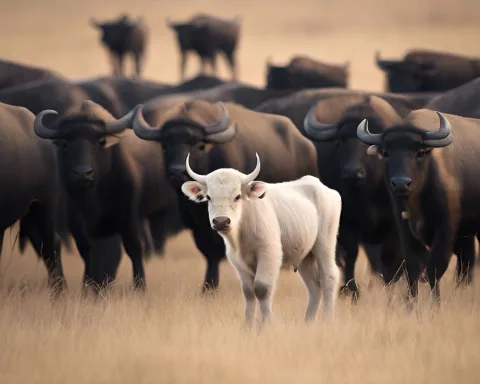The Ministerial Task Team (MTT) has called for captive lion owners who are interested in voluntarily exiting the captive lion industry to register their interest. This move is part of a broader effort to end the commercial use of captive lions and their derivatives.
Background
The MTT was set up in December 2022 by the Minister of Forestry, Fisheries and the Environment, Ms. Barbara Creecy, following recommendations from the High-Level Panel. The MTT’s aim is to close the captive breeding sector. Its original deadline was 30 June 2023, but it has been extended by six months, to 31 December 2023.
Identifying Industry Participants
The MTT’s chairperson, Mr. Kamalasen Chetty, has stated that the Task Team is seeking to identify industry participants who are interested in exploring voluntary exit options and pathways. The MTT will offer confidential discussions to each enterprise regarding potential strategies tailored to their needs. Mr. Chetty emphasized the importance of these discussions, taking into account the welfare of captive lions, the impact on workers, and potential economic outcomes.
Stakeholder Engagement
The MTT has conducted extensive stakeholder engagement, gathering input from representatives from the captive lion industry, wildlife associations, and other interested parties. The goal is to obtain viewpoints and input on potential voluntary exit options, as well as terms and conditions associated with these options.
Collaborating with Provincial Nature Conservation Authorities
The MTT has collaborated with provincial nature conservation authorities to gather information on captive lions within their jurisdictions for a national audit of captive-bred lions. This data will be used to develop effective exit strategies and ensure the long-term sustainability of the transition away from the captive lion industry.
Registering Interest
Captive lion owners interested in voluntary exit options are encouraged to register their interest by 21 July 2023. Registrations can be submitted confidentially and without obligation.
Ongoing Commitment to Collaboration
The MTT remains open to receiving viable and pragmatic proposals for voluntary exit options. This ongoing commitment to collaboration demonstrates the Task Team’s dedication to addressing the complex challenges associated with dismantling the captive lion industry.
The MTT’s call for a voluntary exit from the captive lion industry represents a significant step forward in promoting ethical wildlife conservation and management practices. By engaging with industry stakeholders and considering the multifaceted impacts of this transition, the Task Team aims to facilitate a responsible and sustainable shift away from the commercial exploitation of captive lions. As the deadline for registration approaches, the Task Team’s efforts serve as an encouraging example of constructive dialogue and collaboration in pursuit of a more humane and environmentally responsible future.












